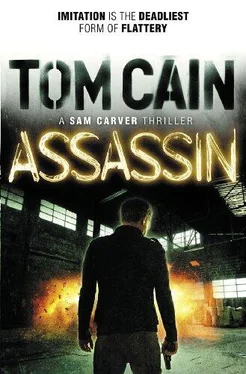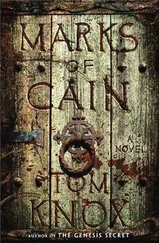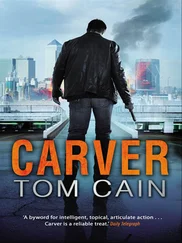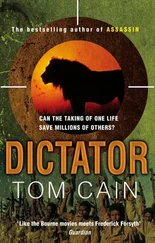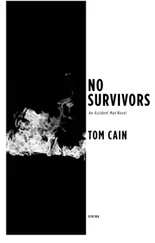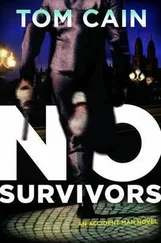Ravnsborg could then see what Carver had not, the red-haired man sidling back into the crowd and disappearing down the street. Carver, meanwhile, looked around. He saw someone – Ravnsborg knew from his witness statement that this must have been Larsson – then ran.
But why? Was this the natural reaction of a fugitive, fleeing the scene of a crime? Or was Carver fleeing something else?
The answers to his question, Ravnsborg felt sure, lay up on the roof of the opera house. He went and poured himself yet another black coffee, then settled down again. He was using a workstation equipped with a widescreen the size of a large domestic TV. It enabled him to get several different shots in front of him at the same time.
His young officers had collected all the material they had found into folders covering specific times, places and incidents. Sipping on his coffee as he worked, he clicked on the one marked ‘Operaen’. There were nine different video files, and 114 photos.
Ravnsborg rubbed his aching eyes. He slapped his hand against his cheek to sting himself back awake. And then he got down to work.
Karin Madsen lay in bed at three in the morning watching the man she was about to marry emerge from the bathroom and walk towards her. There was barely any light in the room, but even so she could tell just by the set of Thor Larsson’s shoulders and the heavy, sighing sound of his breathing that something was wrong: something above and beyond the obvious stress of the past six hours.
She propped herself up on one elbow and asked, ‘What is it?’
‘What’s what?’ he mumbled, almost as if he were making a point of sounding exhausted.
‘Do you think I won’t notice something’s wrong? Come on, Thor.’
‘I’m just wrecked, OK? It’s been a long day, and a night from hell.’
‘I know, darling, it must have been terrible. I understand. But that’s not what I mean. I know you too well, Thor Larsson. I’ve changed your bedpan and wiped your backside. You can’t fool me. Something’s wrong.’
He sat down on the bed. ‘Yes, Kari, something is wrong,’ he said irritably, stating the blindingly obvious. ‘My oldest friend has disappeared. The police say he is responsible for a terrorist attack. His girlfriend doesn’t know if he is alive or dead, innocent or guilty. I have been interviewed by the police, and they told me they may speak to me again. And I’m probably going to have a whole bunch of cops as uninvited guests at my wedding. So yes, something’s wrong.’
Well, it was a reasonable explanation, but it wasn’t the whole story, Kari was sure of it. Something else was eating at Thor. But whatever it was, he wasn’t going to tell her now. If she pressed him any harder it would only lead to an argument and she didn’t want that, not two nights before her wedding.
‘I’m sorry,’ she said, reaching out to rub his back. ‘Come to bed now. I’ll hold you till you fall asleep.’
But it was Karin who slept first, and Thor Larsson who lay in the darkness, guts churning, eyes staring blankly up at the ceiling for hours until exhaustion finally claimed him.
Arjan Visar had received the technical specifications for the weapon that would be used to kill Lincoln Roberts within seventy-two hours of Tyzack’s departure from his villa. He was impressed. Tyzack might be an animal, but it had taken cunning and imagination for him to devise his means of attack, and initiative to commission the design he had in mind.
The finished device, however, depended on an existing piece of technology that could not be purchased without attracting undue attention. So it was that a modest commercial premises tucked away in a mostly residential area of detached family homes in the English Midlands was burned to the ground as a result of an electrical fault. Amidst the damage caused by the blaze itself and the efforts of fire crews to put it out before it could spread to nearby houses, no one noticed the absence of two small units from the company’s inventory. Within a couple of hours of the theft, they had been taken to a small engineering company, whose workshop was located under a railway arch in Manchester, and work had already begun on their conversion from the peaceful uses for which they were designed to the deadly intent conceived by Damon Tyzack.
As the engineers were getting down to work on their conversion job, Jack Grantham was at Heathrow trying to find a seat on an early-morning flight to Oslo. It wasn’t easy. The news that the Norwegian police were looking for an English male – they hadn’t specified that he was a suspect, but that was the only inference that could be drawn – had suddenly given what would otherwise be a shocking but relatively minor tragedy a much more powerful domestic angle. When, in the early hours, Oslo University Hospital announced that two of the seriously wounded victims of the King Haakon Hotel bombing had both passed away, and that they were a British pensioner couple, that just added to the feeding frenzy. It had taken a discreet conversation with a senior British Airways executive to squeeze Grantham on to the 7.20 plane, leaving a big-name newspaper columnist fuming as he was bumped on to a lunchtime departure.
On the plane, Grantham returned to the subject that had been nagging at him for hours. He’d spent the previous evening at the movies: even intelligence officers, after all, have wives and social lives that need to be attended to occasionally. When he left the cinema he forgot to switch his phone back on. It wasn’t till he was home that he remembered and picked up the text Carver had sent him, which consisted of three short messages topped by two questions and a statement: ‘Was this you? If not, who? Framed.’
The answer to the first question was easy: no, it damn well hadn’t been him that sent the messages to Carver. So who was it? Well, ‘Mrs Z’ herself, Olga Zhukovskaya, was still a Deputy Director of the FSB, and strong, reliable rumours suggested she would soon be its Director. Yet there seemed no reason that Grantham could think of why she would want to stage a bombing in the middle of Oslo (and he had spent half the night going through the bombing’s casualty list trying to find one), still less plant it on Carver. He had got her out of a very nasty hole in the Waylon McCabe affair. She had no reason to feel anything but gratitude towards him. That wouldn’t stop her screwing him if she could gain sufficient advantage from it, of course. But try as he might, Grantham could not think what that advantage might be.
On the other side of the Atlantic, there were senior officers at the CIA who knew about Carver’s role in disposing of McCabe. They might well have uncovered Zhukovskaya’s involvement by now – Grantham had hardly publicized it at the time – but again, he could not see how the Cousins stood to benefit by what had happened in Oslo. After all, one of the victims – the presumed target, according to some reports – had been a prominent anti-slavery campaigner, and President Roberts was about to go balls-out against slavery.
Grantham was a professional conspiracy theorist. Experience had told him there was no explanation so bizarre that it could not, in fact, be true. So he was willing to consider the possibility, however grotesque, that some headcase at Langley had decided that the death of a photogenic campaigner against human trafficking would give the President’s crusade some handy advance publicity. It was not inconceivable, either, that this was a cover-up of some kind. One of the grubbiest aspects of this sordid trade had long been the involvement of senior UN officials, military personnel and corporate leaders in facilitating the passage of trafficked women through territories like Montenegro, Kosovo and Bosnia. Plenty of respectable men, with no desire to be embarrassed, had procured women for themselves. It was not inconceivable that their allies in the CIA might wish to snuff out any embarrassment. But using a man with known links to SIS, the Agency’s closest ally, well, that was just bad manners.
Читать дальше
